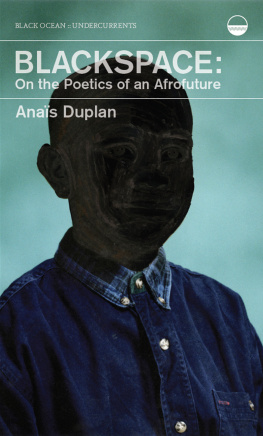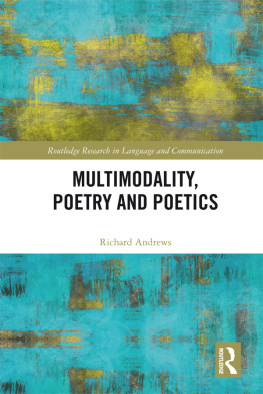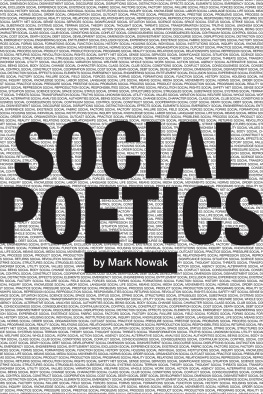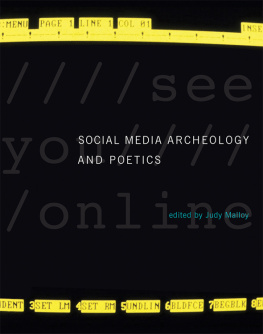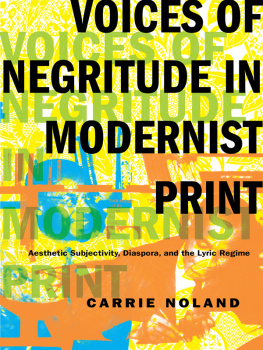Contents
Page List
Guide
BLACKSPACE:
On the Poetics of an Afrofuture
Anas Duplan
Blackspace:
On the Poetics of an Afrofuture
Anas Duplan
2020 by Anas Duplan
All rights reserved.
To reprint, reproduce, or transmit electronically, or by recording all or part of this manuscript, beyond brief reviews or educational purposes, please send a written request to the publisher at:
Black Ocean
P.O. Box 52030
Boston, MA 02205
blackocean.org
Cover Design by Julian Montague | montagueprojects.com
Book Design by Taylor D. Waring | wanderingreliq.com
Cover Art by Kalen Roach | kalenroach.com
ISBN: 978-1-939568-32-8
Library of Congress Control Number: 2020941044
FIRST EDITION
Contents
PARADIGMS FOR LIBERATION
D AILY, I am enmeshed in a constellation of oppressions, which we could call the white supremacist, capitalist patriarchy.
Has my life been predestined?
Can I pursue liberation?
What kind of liberation can I pursue?
I have discovered that when I experience what is universal in me, I may leave my individual oppressions behind.
This discovery is important, and at the same time, I need a way of working towards liberation that sees me as a unique person, occupying my distinct social positions as a black, Haitian, transgender, nonbinary, pansexual human being. The praxis of attaining liberation as an individual, a member of society, and as a human is incomplete if, in my methodology, I dont address each of these nodes.
So far, Ive found that one of my best opportunities for liberation is in esthetic experience.
When Im rushed by the smell of patties walking past a bakery, Im having an esthetic experience. Works of art can provide these moments, too. Art magnifies the sensual qualities found in my daily experiences. The memories of childhood brought on by the bakerys aroma, the colors of its storefront signage, and the texture of the patties outer shell are all things a painting might also evoke.
Life is this ongoing interaction between myself and my surroundings. The basis of this interaction is my drive to satisfy desire: I want to avoid destruction and death. My environment is alternately supportive of and hostile about this goal. I fall in and out of equilibrium.
After a period of chaos, the return to form and order is the beginning of the esthetic. How can art help us be free? In the words of Audre Lorde, through the chaos of knowledge.
The artist tries to return to union, which she does in and through conflict. The scientist tries to return to conflict, form and order marking the end of her work. The scientist illuminates the tension between thought and matter, which the artist tries to resolve. These figures need each other. Esthetic experience doesnt happen in a world without disequilibriuma perfect worldnor in a world of always and only conflict.
Sense is meaning. Without sense, there is no volition, motion, participation, or communication. As John Dewey writes in Art as Experience, Oppositions of mind and body, soul and matter, spirit and flesh all have their origin, fundamentally, in fear of what life may bring forth. Art seeks this vitality. The many images and sounds that make up my experience gather sense together, and, at their conclusion, resound in unison.
Fear is unnecessary to live, but sometimes I force myself to live in it.
Last night, I had a dream about lynchings. I was on a train with Dr. Martin Luther King Jr., a few other black folk, and many whites. King held up his arms and suddenly the whites were gone. The lynchings in the dream were understood rather than seen. I had this dream after a late night phone call with my friend Jordan about the idea of harmony in Western esthetic theory. Beauty is truth and truth is beauty. Truth as a function of beauty. Harmony means white. Black is beautiful!
Adrian Piper took photos of her naked body while reading The Critique of Pure Reason to make sure her body was still there. I dont want to talk about the black body. Where is such a thing? I am not inside of anything. I want the monad. I want integration, but not the kind that requires white and black to participate. Integration as the move from a dualist Cartesian world to the monists world, so that transcendence is a misnomerthere being nothing to get beyond, to get above or around. In this single world-substance, everywhere is home; everything is forever; and everyone is inalienable.
We often turn to history for lessons that we hope will guide us through the present moment. Thats a worthy cause, and Id like to think that the process of remembering history together as a culture saves us from repeating the mistakes of the past. As weve seen in this nations history, however, there are limits to this process, especially when defining the success of seeing together can be tricky, to say the absolute least. Can you remember a time when all of America saw together?
Its easy to take for granted the invisible processes of narrative construction and deconstruction that go into the formation of our historical stories. Narrative is both an esthetic and a political tool, wielded by agents who hold power to produce some felt effect in a readeror in a colonial subject.
Leading up to the start of the Algerian War of Independence in 1954, members of the Federation of Elected Muslims disagreed with each other about whether Muslim Algerians should assimilate to French culture or demand complete separation from France, which, as a Christian country, rejected Muslim Algerianss pleas for French citizenship. Years later, in the 70s, the General Assembly of the United Nations (UN) debated whether wars of national liberation should be protected under international law or if they should be considered illegal (and punishable) forms of armed conflict. Both debates strike me as negotiations over a semantics of freedoma decision about what exactly liberation will mean.
The rise of the Black British Feminist Movement in the 1970s and 80s, which brought together Afro-Caribbean and South Asian British women, arose, at least in part, in response to the narrow scope of the womens lib movement as it had existed to date. The movement eventually fragmented and collapsed. Writers on the movement have often tried to name what caused its eventual fragmentation and collapse, as many writers have tried to do in response to the failed organized actions at May 68 or Occupy Wall Street.
In The Power of the Poor in History, Gustavo Gutirrez argues that liberation theology, by awakening memories of past struggles, elicits a special, subversive kind of memory that then encourages the active reinterpretation of historical struggles. Today, I have many conversations about whether the interactivity of social media has elicited an uprising of newly empowered creator-consumers to rewrite dominant, hegemonic narratives of history, foregrounding those forgotten social agents whose voices and contributions have been effectively and nearly unconsciously erased from history. Whether remembering togetherand doing so subversivelydoes indeed have the power to rewrite history and forge a healthier future. Im inclined to believe that in the very least, there is value in looking again at what already occurred at a time when what is up ahead seems uncertain at best.
In The Young Algerian: From Colony to Province, Ferhat Abbas, who would later become the President of the Provisional Government of the Algerian Republic, writes, Algeria is French territory. We are Frenchman with Muslim personal status. Abbass pronouncement wasnt corroborated by reality.

